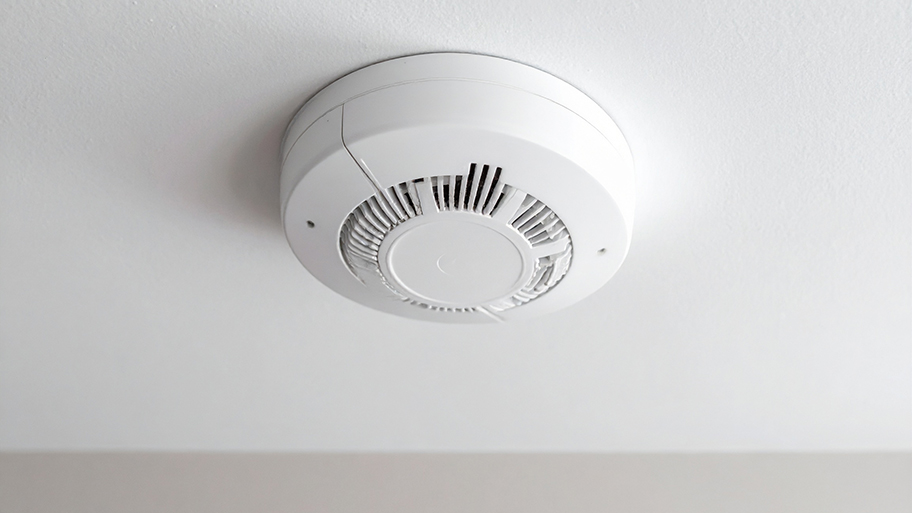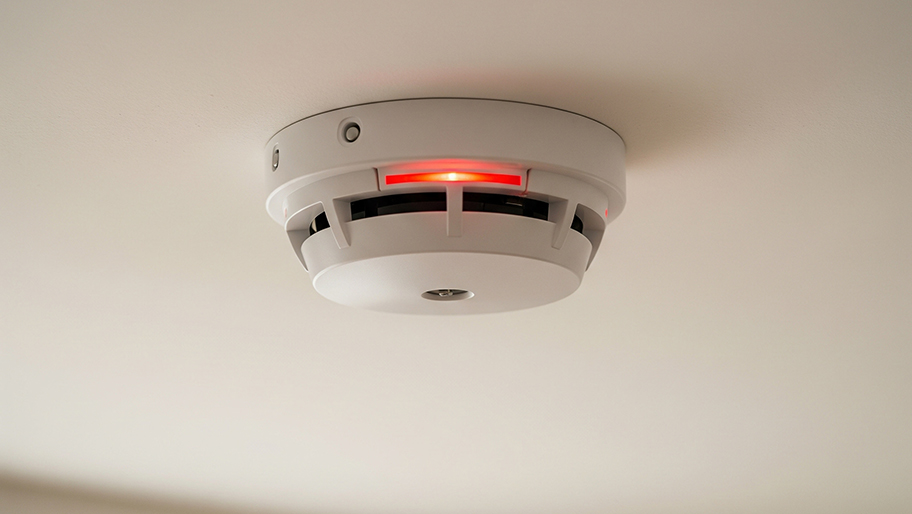
Discover true smoke detector installation costs. Learn about average prices, cost factors, and tips to save on your smoke detector installation project.
Even burglars admit that security systems make them think twice
You could have a 300% greater chance of burglary without a security system.
Over 72% of burglaries occur when someone is away from home.
Security cameras can help deter crime, but data is limited on how much they help.
Work with an installation company for the ultimate security system.
With readily available plug-and-play options, home security systems are more accessible than ever. While it’s natural to hope that even just hanging a sign from ADT, the most popular security system brand in the U.S., might be enough to deter crime, the data is mixed on whether alarm systems do deter burglars. Some research has shown that homes without security systems are 300% more likely to be burglarized, while others show a modest decrease in crime.
Whether you hire a professional or go the DIY route, modern security cameras and alarm systems don’t have to be prohibitively expensive, so they may be worth it for peace of mind. Here’s what you need to know.
According to the most recent FBI data, larceny and theft accounted for more than 70% of property crimes. This involves things like pickpocketing, shoplifting, and bicycle theft. Only about 16% of crimes were burglary. In other words, most criminals aren’t breaking into people’s homes, which alarms and surveillance cameras aim to prevent.
Nonetheless, home security systems are still useful because most people aren’t home during a break-in. According to the Department of Justice, only 27.6% of burglaries happened when someone was home, and 65.1% of burglars knew the person they burglarized.
Research about whether or not security cameras deter crime isn’t clear-cut—but there’s solid evidence that they help. Multiple studies link the installation of security cameras with reduced burglary rates.
According to David Margulies, a spokesman for the Security Industry Alarm Coalition, a study by the Rutgers University School of Criminal Justice found that an increase in security alarm installation caused a decrease in burglaries over five years.
Prominently placed security cameras may reduce crime, but it’s hard to prove amidst historically declining crime rates. NBC News looked into Amazon’s claim that their Ring doorbell security camera reduced burglaries by more than 50%. They could only find evidence from law enforcement agencies, who largely believed that the cameras helped but couldn’t say how much. Most officers admitted that they caught very few criminals using Ring security footage.
Both experts and actual burglars say alarm systems deter break-ins, mainly because most burglars are amateurs. In a University of North Carolina at Charlotte study that surveyed 422 convicted burglars, 83% of burglars admitted they check homes for alarms before breaking in. 60% of the burglars claimed an alarm would change their minds.
“The benefit of a security alarm comes more from deterring crime and limiting loss if a burglary does happen,” says Bill Nelson, owner of Nelson Alarm in Indianapolis.

Even if you aren’t ready to purchase a home security system, you can take alternative security measures. Some home security upgrades are simple enough to tackle over a weekend.
Check out the following home security tips to increase safety in and out of the home.
Do you have a spare key under a flower pot or doormat? Most burglars know exactly where to look, but a smart lock—which uses a code, fingerprint, mobile app, or keypad instead of a traditional key—eliminates this risk.
If you were thinking about getting a dog anyway, a study published by U.K.-based Co-op Insurance found that man’s best friend can help deter crime. Almost half of the burglars surveyed admitted that loud barking dogs keep them away.
Most break-ins involve some sort of property damage, like smashing a window. An air conditioning window unit can be an easy point of entry. In the Co-op Insurance study, burglars revealed they avoided breaking into homes with heavy doors and UPVC windows. There are plenty of ways you can secure windows, like using locks and bars.
Some homeowners choose motion detectors or window sensors. Both options offer potential benefits to home security. Motion detectors can help catch intruders when they approach your doors and windows, while window and door sensors help catch intruders after they attempt to enter a home. You can take it a step further than motion detection with presence detectors. These sensors are more sensitive to motion, which can make them good for subtle monitoring.
Since most break-ins happen when people aren’t home, looking like you’re home can help prevent burglaries. In the Co-op Insurance study, burglars admitted that they could be deterred by something as simple as leaving on a TV. Motion sensor lights may also help, and window treatments can make it harder for burglars to tell if someone is home.
Most security systems are DIY-friendly, making it easy for you to simply order your system and install it yourself. At the same time, amateur installations can create blindspots or faulty devices that fail to capture a crime—especially if you don’t know how to install a home security system. For these reasons, it’s best to hire a pro to install your security system.
An experienced alarm system installer near you can pinpoint the best locations to install your security system. They might even recommend other steps you can take to secure your home, like trimming trees and shrubs, to make crime even less likely. From security cameras to motion-sensor lights to window and door sensors, your home’s weak entry points will be better protected from burglars with the help of a trained professional.
Be sure to vet your provider when choosing a home security company to ensure you receive the best services in your area. This can help maximize your safety and give you the best bang for your buck.
From average costs to expert advice, get all the answers you need to get your job done.

Discover true smoke detector installation costs. Learn about average prices, cost factors, and tips to save on your smoke detector installation project.

Motion-sensor lighting costs vary greatly because they have so many customizations available. Learn more by using this cost guide about motion-sensor lights.

A security camera system gives you peace of mind that there’s always a watchful eye on your home. Learn the costs of installing surveillance cameras.

How often do you ask yourself, why does my fire alarm keep beeping? There are plenty of culprits behind such an issue and a number of easy fixes.

Don't ignore your smoke detector if it has flashing red lights. It could indicate a problem that needs immediate attention. Here's how to tell what to do.

Keyless doors help grant access—when you want it—to your home, but are they safe? Learn about their pros and cons before adding them to your home’s security.